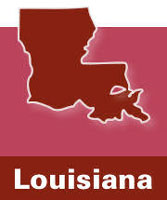Governor Bobby Jindal is signing a bill today designed to prevent women from being pressured into having an abortion they may not otherwise want and that the state legislature approved by large margins.
The bill makes it so signs may be posted at abortion centers across the state advising women of alternatives to abortion and that they have the right to refuse an abortion. The signs must measure no smaller than 16 inches by 20 inches and must be posted in the waiting area of abortion centers in Louisiana.
 The signs inform women that they can’t be forced to abort against their will, the father is liable for support, adoptive parents may pay costs of prenatal care and childbirth, and there are many public and private resources to help during and after pregnancy.
The signs inform women that they can’t be forced to abort against their will, the father is liable for support, adoptive parents may pay costs of prenatal care and childbirth, and there are many public and private resources to help during and after pregnancy.
The legislation also creates a Department of Health and Hospitals website and mobile/smartphone platform to deliver info about public and private pregnancy resources, free ultrasound, abortion health risks, the development of the unborn child, etc. In addition to being posted on the sign, the web address must be given by phone or email at the initial contact seeking an appointment.
Jindal is signing the bill today at First Baptist Church of West Monroe.
Dorinda Bordlee of the Bioethics Defense Fund, applauded lawmakers for voting for the signs against coerced abortions. She drafted the bill and calls them “Signs of Hope.”
“Unlike the signs required by several states that warn women in abortion clinics that they cannot be coerced, the BDF Signs of Hope model takes the proactive step of requiring outpatient abortion facilities to post 16 x 20 signs in their waiting areas and patient rooms informing women that they can’t be forced to abort against their will; the father owes child support even if he offered to pay for the abortion; adoptive parents may pay costs of prenatal care and childbirth; and there are many agencies to help women during and after the pregnancy,” she said.
“The bill was dubbed the ‘Signs of Hope’ Act in committee testimony by Cindy Collins, the director of a center that counsels post-abortive women, because the signs will bring the hope of alternatives to women who are often feeling hopeless in abortion clinics due to the failure of others to welcome her child,” Bordlee added.
Benjamin Clapper, the director of Louisiana Right to Life, was one of the key supporters of the bill during the legislative process.
“Did you know 64% of women who choose abortion felt coerced or pressure to make that decision, often against their will?” he told LifeNews.com. “HB 586 is a product of many months of planning, along with in-depth discussions with the Department of Health and Hospitals (DHH) and Secretary Bruce Greenstein. We are proud to be a prime sponsor of this legislation.”
 “Women deserve love and commitment. But a tragic consequence of Roe is that it enables men to use women and then subtly or overtly coerce abortion. Often it is an employer, friend or parent who pressures a woman to abort,” Clapper explained. “We believe this legislation modernizes Louisiana’s Women’s Right to Know Law and helps reach women considering abortion with the essential information and the numerous agencies and resources available to assist them both before and after birth.”
“Women deserve love and commitment. But a tragic consequence of Roe is that it enables men to use women and then subtly or overtly coerce abortion. Often it is an employer, friend or parent who pressures a woman to abort,” Clapper explained. “We believe this legislation modernizes Louisiana’s Women’s Right to Know Law and helps reach women considering abortion with the essential information and the numerous agencies and resources available to assist them both before and after birth.”
During the committee hearing, Bruce Greenstein, secretary of the Department of Health and Hospitals, said the agency would pay for the signs and distribute them because, as the Daily World reported him saying, “more educational information is better. Our goal is to protect the health and safety of all residents. This will help protect women in the state by assuring that they understand their rights.”
“No one can force a woman to have an abortion, not even a young woman’s parents,” he said.
But Julie Mickelberry of Planned Parenthood opposed the bill against coerced abortions. Rep. Robert Johnson, a Democrat, told her, “I don’t see any objection to a sign. It’s just telling your rights.”
The state health department indicates 8,867 abortions were reported in 2010.







